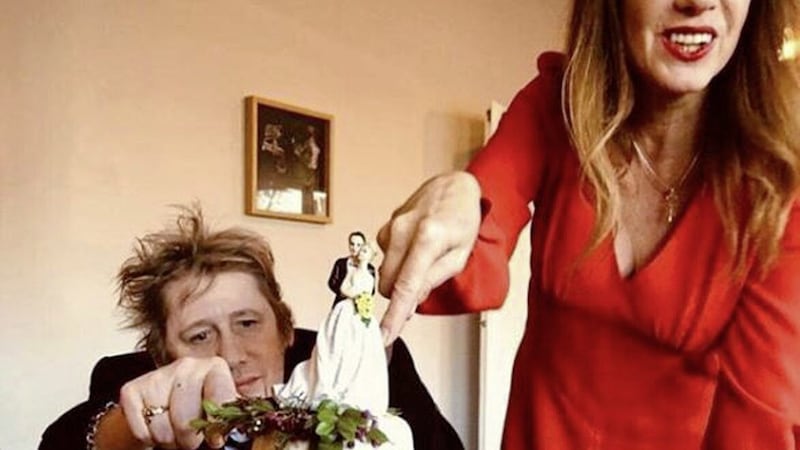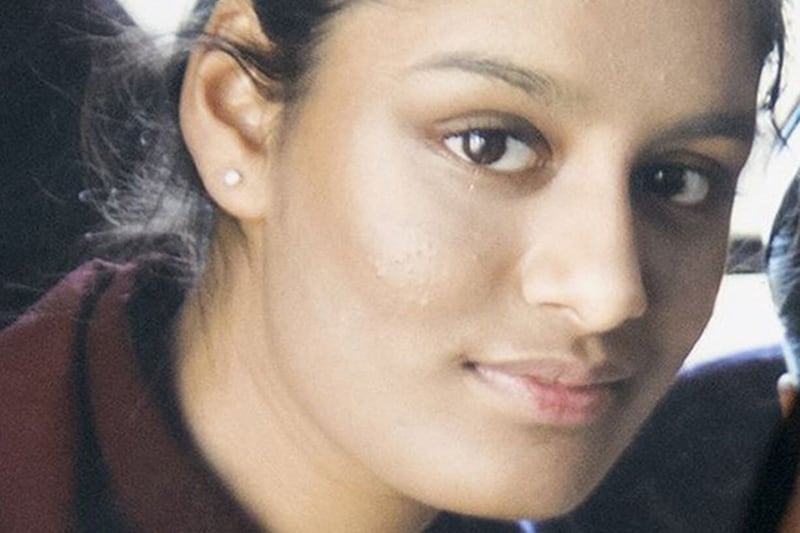The Shamima Begum Story, BBC2, Tuesday
IT WAS eight years ago that Shamima Begum first made headlines.
Then aged 15, she left London with two friends to join the terror group Islamic State, with the trio becoming known as the Bethnal Green Girls.
Four years later, she made the news again when, pregnant with her third child, she begged to be allowed to come home to the UK.
Showing little remorse for her actions, the British government saw her as a threat and stripped her of her citizenship, leaving her today still in a Syrian prison camp.
Her supporters says she is a victim of being brainwashed and trafficked to join Isis, but for many others she is still seen as a divisive figure.
This BBC 2 documentary, which comes after a 10-part podcast, revisited every step she has taken since her departure in 2015, with investigative journalist Josh Baker trying to understand what really happened.
Giving her own account, Shamima begins by telling the programme she fled Britain because her family wanted a "loose and immoral" life for her, adding that she "didn't feel accepted by society because of racism".
She says she joined Isis because she "wanted to be loved, because I felt I was not loved".
Recalling the moment she said goodbye to her mother, she says: "I had to make an excuse as to why I was going, so I was just like, 'I have extra classes that I need to go to' and my mum believed me.
"I just stood there with her being quiet and stuff and then I got on the bus and I said bye and she was just being really quiet.
"She was just staring at me and not saying anything and I just said bye to her and I got on the bus and I left."
Flying from Gatwick to Istanbul, the documentary broadcasts secretly-recorded footage of Shamima and her friends at a bus station waiting for their Isis handler.
Met near the Syrian border, just 10 days later Shamima married Dutch extremist Yago Riedijk. She went on to have three children, all of whom died young.
There's testimony throughout the programme from her childhood friends, eye-witnesses, Isis experts and an appearance from Riedijk, now a prisoner of the Syrian regime.
But it mostly centres on the words of Shamima herself, now aged 23 and confined to a Kurdish-run refugee centre for the past four years. She describes life as "worse than a prison".
It is clear Shamima, well-dressed in Western-style clothing with sunglasses perched on her head, has undergone some sort of PR or media training. Pressed throughout by Baker, she denies she helped prepare suicide vests or tried to recruit people or saw any evidence of the terror group’s atrocities.
At times her answers are questionable, for example when she claims to know nothing, not even the name, of the wealthy Egyptian she and her husband lived with for many months.
She acknowledges it's unlikely she will ever be allowed back home.
Asked about where she thinks she will be in seven years, "here" she says instantly. "Because Isis was the worst thing in the 21st century and I was a part of it and now I have to face the consequences of my actions, and this camp is the consequences of my actions".
But are her words hollow?
Are we to believe she was brainwashed and trafficked by Isis?
Baker does not portray her as either an innocent victim or a terrorist, but presents both scenarios and leaves it up to viewers to make up their minds.








